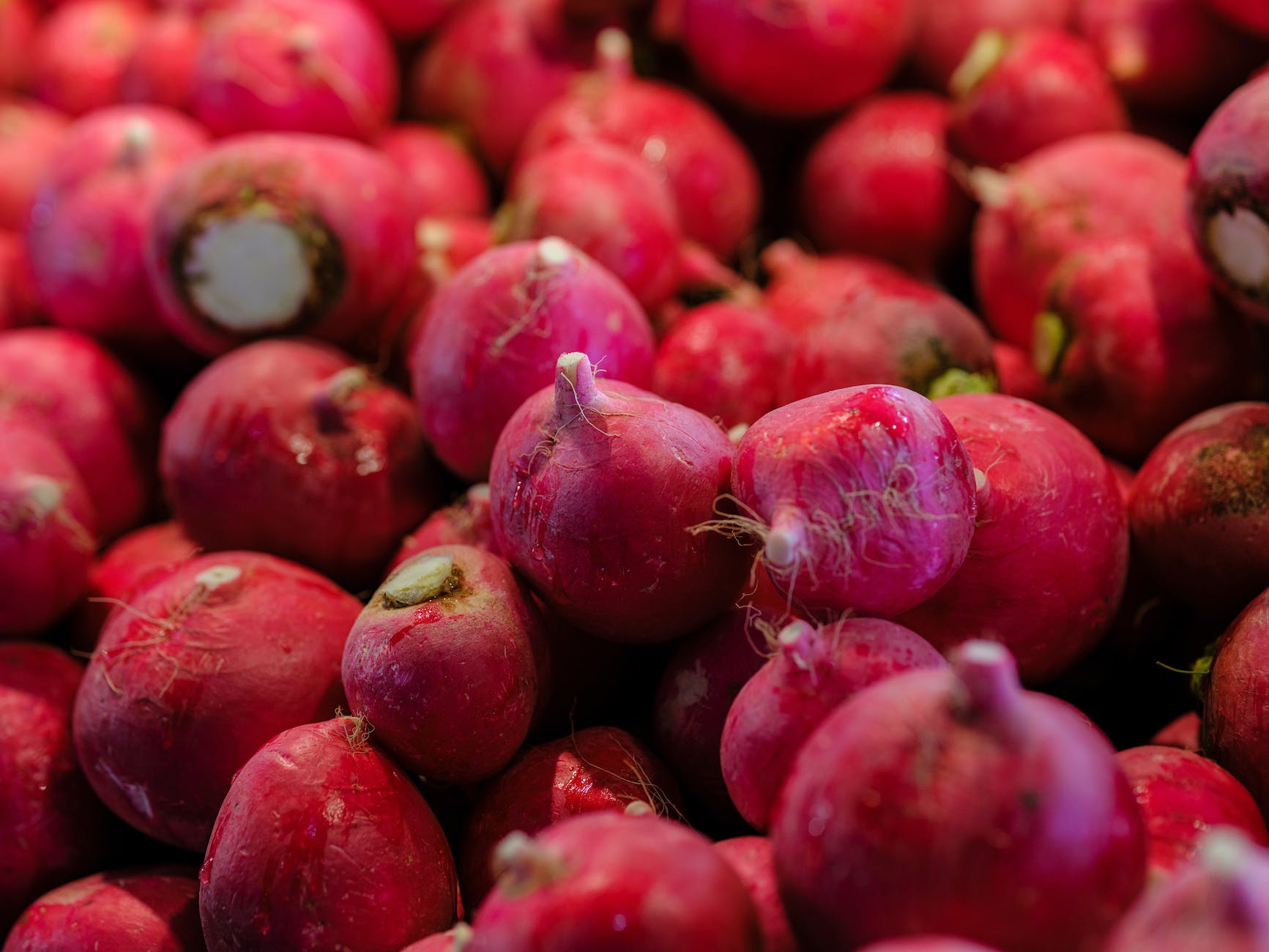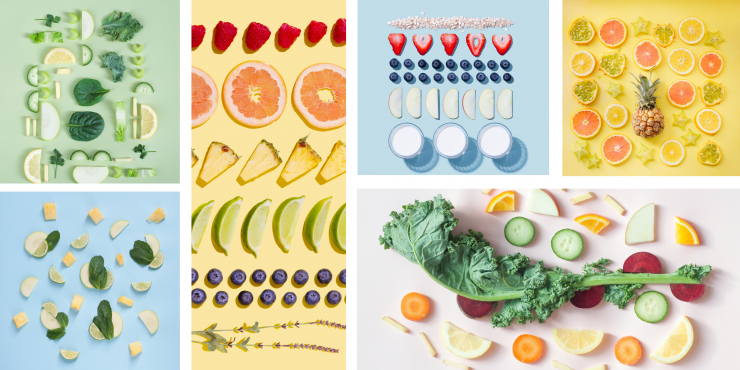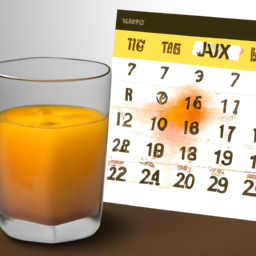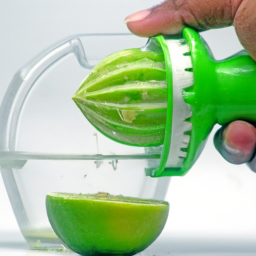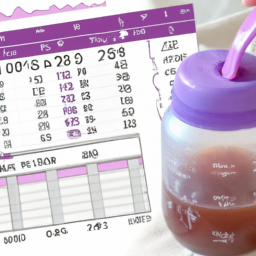Having trouble discovering delicious yet nutritious foods? Well, look no further because beets and beet juice might just be the answer! Not only are these options tasty, but they also provide a plethora of health benefits. As an expert in dietetics and nutrition, I am excited to share the many nutritional advantages that beets have to offer.
Beetroots are packed full of various vitamins and minerals such as vitamin C, folate, potassium, magnesium and iron. They’re also a great source of dietary fiber and contain powerful antioxidants like betalains – all important components for maintaining good health. Furthermore, research suggests that regular consumption of beets can help reduce inflammation, improve heart health and support healthy liver function.
And don’t forget about their partner-in-crime: Beet Juice! This powerhouse drink is not only convenient when it comes to adding more plant-based nutrition into your day; it’s also packed with many essential vitamins and minerals too! Plus studies show that drinking beetroot juice can help lower blood pressure levels due to its high nitrate content. So whether you’re looking for more flavor or greater nutritional value in your food choices – you really can’t go wrong with these two powerhouses!
Beets, also known as beetroot or red beets, are a root vegetable that come in many colors and varieties. This popular vegetable can range from vibrant shades of magenta to golden yellow. Sugar beets are white and are primarily used for processing into sugar while the other types of beets are mostly eaten fresh or cooked. Beets have been around for centuries, with records showing they were cultivated by ancient civilizations such as the Romans and Greeks.
Nutrition-wise, beets are low in calories but high in essential nutrients. They contain a good amount of dietary fiber which helps promote regular bowel movements and improve digestion. Additionally, beets provide vitamins A, C and K along with minerals like manganese, iron and phosphorus. Lastly, this amazing vegetable is packed with powerful antioxidants including betalains which may help protect against cancer cell damage.
Because of their versatility and health benefits, adding beets to your diet can do wonders for your overall wellbeing! From being added to salads to roasted or juiced – there are plenty of ways you can get creative with these delicious vegetables. As we move forward let’s take an in depth look at the nutritional value associated with eating beets…
Nutritional Value
Vibrant in color and flavor, beets are also a nutritional powerhouse! Packed with essential vitamins, minerals, and phytonutrients, this root vegetable is an excellent addition to any diet. Let’s take a deeper look into the nutrition content of beets:
- Calories: One cup of boiled beetroot contains 58 calories.
- Vitamins: Beets contain significant amounts of folate, vitamin C and manganese. Additionally, they are a good source of potassium, magnesium, phosphorus and vitamins B6 and A.
- Minerals: Beet roots provide dietary fiber along with several important minerals like iron, calcium as well as zinc.
- Phytochemicals: They contain various plant compounds such as betalains which give them their bright red hue.
Including beets in your diet can help you meet both your daily nutrient needs while providing some unique health benefits that may surprise you! The high levels of antioxidants found in beets have been linked to numerous health benefits including reduced inflammation and improved cardiovascular health. On top of that, studies suggest that these powerful antioxidants may even reduce your risk for certain types of cancer. With so much goodness packed into one small veggie it’s no wonder why beets continue to show up on our plates time after time! Up next we’ll explore the antioxidant properties present in beets…
Antioxidant Properties
Beets are loaded with antioxidants that help protect the body from free radical damage. This can reduce cellular damage, which is linked to a decrease in disease and cancer prevention. One of the key antioxidants present in beets is betalain, which gives them their vibrant color. Research has found that this antioxidant content helps inhibit certain types of cancers and inflammatory diseases such as arthritis.
The other powerful type of antioxidants in beets are polyphenols. These compounds have been studied extensively for their potential benefits on cardiovascular health. They may also help regulate blood sugar levels, reducing your risk of diabetes-related complications.
In addition to their high levels of dietary fiber, vitamins and minerals, beets are chock full of beneficial plant compounds and antioxidants that offer numerous health benefits. Eating beets or drinking beet juice regularly can provide significant protection against oxidative stress and chronic inflammation, contributing to overall well-being and longevity. With these protective effects comes an increased chance at preventing many age-related illnesses like heart disease, stroke, cancer and Alzheimer’s Disease.
With all these incredible properties it’s no wonder why adding beets into your diet – either raw or cooked – could benefit your health substantially! Moving on from here let’s explore how consuming beets can give you digestive benefits too!
Digestive Benefits
Beets have a unique combination of dietary fibers, minerals and vitamins that can help to support digestive health. The high fiber content in beets helps keep the gut bacteria balanced and healthy. Beetroot contains both soluble and insoluble dietary fibers which promote regular bowel movements by adding bulk and softening stools. This makes it easier for people to pass stool without straining or discomfort.
The antioxidants in beet juice also act as digestion aids by stimulating bile production from the liver. Bile helps break down food so that our bodies can absorb more nutrients from it. Beets are also rich in natural plant compounds called polyphenols which contain beneficial enzymes that aid in digestion.
In addition, beets are packed with essential vitamins such as folate, vitamin A, K and C which help maintain good health and boost immunity. All these components make beets an ideal choice for improving overall digestive health. As a result, we can enjoy better nutrient absorption from foods while promoting greater energy levels throughout our day-to-day activities.
The detoxification effects of beet juice provide yet another reason why it should become part of your daily diet routine.
Detoxification Effects
Beets and beet juice can offer many detoxification benefits. The high levels of naturally occurring nitrates in beets help to improve the function of your liver, which is one of your body’s main organ for cleansing toxins from the blood. As a result, consuming beets or drinking beet juice could help with detoxifying the body. Beet root has also been shown to increase bile production – another important factor in ridding your body of built up toxins.
In addition to its role in helping maintain good liver health and aiding digestion, research suggests that consuming more foods like beets may help reduce inflammation throughout the body; an effect that could further contribute to overall detoxification efforts. Furthermore, studies suggest that compounds found in beets may even have protective effects on both the intestines and gallbladder!
By adding some fresh beets or freshly-made beet juice into your weekly routine you can enjoy these potential detoxing benefits while reaping all of their other amazing health advantages as well!
Cardiovascular Health Advantages
The deep red color and earthy sweetness of beets have long been revered for their health benefits. Aside from being a great source of essential vitamins, minerals, and antioxidants, they can also help improve your cardiovascular health. Let’s take a look at how:
| Blood Pressure | Cholesterol Levels |
|---|---|
| Reduced | Improved |
Beet juice is rich in nitrates that are converted into nitric oxide in the body. Nitric oxide helps to relax and widen blood vessels which allows more oxygen and nutrients to be delivered throughout the body efficiently. This increased flow helps reduce high blood pressure levels, reducing risk of stroke or heart attack. Additionally, beetroot fiber has been shown to bind bile acids in the gut which reduces cholesterol levels in turn improving heart health.
In terms of daily consumption, one cup of raw beetroots contains approximately 58 calories with 3 grams of dietary fiber providing nearly 12% of your recommended daily value intake! So what does this mean? Including just one serving per day can go a long way towards helping maintain healthy blood pressure and cholesterol levels – making it an easy addition to any diet plan! With these Cardiovascular Health Advantages established, let’s now explore the immunity boosting powers that beets possess..
Immunity Boosting Powers
One of the most incredible ways beets and beet juice can benefit our overall health is through their immune-boosting capabilities. Beet extract contains several compounds that have been found to act as immunity boosters, such as betanin, which has anti-inflammatory properties. Betanin in particular helps the body fight off harmful bacteria and viruses while simultaneously boosting the production of white blood cells needed for a healthy immune system.
Beet juice also contains antioxidants like vitamin C and flavonoids, both of which are essential components in keeping our bodies strong against diseases. Vitamin C works by supporting certain areas of the immune system and helping to reduce inflammation. Meanwhile, flavonoids support cell growth throughout our body and help protect us from infections or illnesses caused by free radicals.
In addition to these nutrients, some research suggests that drinking beet juice can provide an even more powerful boost to your immunity. Studies suggest that those who consume regular doses of beet juice may experience fewer common colds compared to non-consumers due to its high concentration of vitamins and minerals able to supercharge the body’s natural defenses. The next section will discuss how beets and beet extracts can offer anti-inflammatory qualities for further protection against disease.
Anti-Inflammatory Qualities
Ah, the benefits of beets and beet juice! It’s like we’ve discovered a golden elixir that can help manage inflammation and chronic pain. It’s no wonder why more people are turning to this unique root vegetable for its anti-inflammatory qualities. And let me tell you – it doesn’t disappoint!
Beet juice is loaded with nutrients that combat joint inflammation and reduce an inflammatory response in the body. The nitrate content found in beets helps reduce blood pressure, while their antioxidants protect cells from damage caused by oxidative stress. In addition, betalain pigments contain powerful anti-inflammatory properties which make them effective at reducing swelling throughout the body.
So if you’re looking to improve your health while also managing any chronic pains or inflammations naturally, then look no further than adding some delicious beet juice into your life! Not only will it taste great, but it’ll do wonders for your overall wellbeing as well!
Preparation And Consumption Of Beet Juice
Now that we understand the anti-inflammatory qualities of beets and beet juice, let’s explore how to prepare them for consumption. Making fresh beet juice is an easy process and can be done with a juicer or blender. Start by washing your beets thoroughly to remove any dirt. Then cut off the leaves and stems before peeling the skin away from each individual beet. Once peeled, you can then chop up the beets into small pieces as this will make it easier for your juicer or blender to extract the juice easily.
For those who don’t have access to a juicing machine, there are several recipes online that use blenders or food processors which work just as well in creating delicious juices! For example, you could blend together 1 cup of fresh chopped apple, 2 cups of orange juice, ½ cup of spinach, and 3 medium sized beets until everything is smooth and creamy. This makes a tasty yet healthy concoction packed full of vitamins and minerals!
Beet juice is best consumed right after making it when all its nutrients are still intact but if you would like to store some for later on, simply put it in an airtight container in the fridge where it should last around three days. When drinking freshly made beet juice though, try not to exceed more than one glass per day since too much could lead to potential side effects such as headaches or stomachaches due to its high mineral content.
Potential Side Effects
When it comes to the side effects of consuming beets or drinking beet juice, there are a few important considerations. First, those individuals with certain dietary restrictions may need to avoid them entirely. People suffering from thyroid issues should not drink too much beet juice since goitrogens can interfere with thyroid function. Additionally, people who have had kidney stones in the past should limit their intake as oxalates found in beets could contribute to further stone formation.
Beeturia is another potential side effect that some people experience after eating beets or drinking beet juice. This condition causes red pigment in urine and stools due to the presence of betanin. While this occurrence is typically harmless, you should consult your doctor if you notice changes in coloration when using the restroom following consumption of these foods.
Finally, allergies and sensitivities are also something to consider for those looking into incorporating beets into their diet routine. If you’re allergic to other plants such as spinach or chard then chances are high that you’ll also have an allergic reaction to beets and related products like beetroot powder or extract. It’s always best practice to check with your healthcare provider before adding any new food item – especially one that has the potential for causing an allergic reaction – into your diet regimen!
Frequently Asked Questions
What Is The Difference Between Beets And Beet Juice?
When it comes to nutrition, beets and beet juice can offer a variety of benefits. But what is the difference between them? Let’s explore how these two types of food are different from each other and how they can help improve your overall health.
Beets are usually eaten cooked or raw and come in several varieties like red, yellow, and white. They contain vitamins A, B6, C, iron, potassium and magnesium as well as dietary fiber which helps with digestion. Additionally, they have antioxidants that may help protect against certain diseases. Beet juice on the other hand is made by blending fresh beets into a liquid form. It contains all the same nutrients as regular beets but has fewer calories than eating them because some of the fiber is lost during juicing.
The main benefit of both beets and beet juice is their high content of nitrates which convert to nitric oxide when consumed. Nitric oxide increases blood flow throughout the body which leads to better oxygenation of muscles and organs while also reducing inflammation levels in arteries. Furthermore, studies suggest that consuming either one can reduce blood pressure levels, enhance athletic performance and promote brain health due to its anti-inflammatory properties.
Though both forms provide great health benefits for many people, individuals should consider if either form works best for themselves since there are potential side effects such as digestive issues or kidney stones associated with too much consumption. Consulting a registered dietitian/nutritionist will give further insight into whether or not incorporating these foods into your daily routine would be beneficial for you!
Are There Different Types Of Beets?
Are there different types of beets? Yes, in fact there are several varieties of beets that can provide a variety of flavor profiles and nutritional benefits. Red beets are the most common type found in grocery stores. They have an earthy sweetness with a slightly bitter aftertaste. Yellow beets offer a milder flavor than red beets, while candy cane beets tend to have more sweetness than their counterparts. Chioggia beets feature white and pink stripes inside when cut open, imparting an even sweeter taste compared to other beet varieties. Golden beets also possess sweet flavors but they don’t contain as much sugar as the others do.
No matter which type you choose, all these varieties share many similar nutrition properties: Beets are high in fiber, vitamins A and C, potassium, folate and magnesium. Additionally, they’re low-calorie yet packed full of antioxidants like betalains which may help reduce inflammation and protect against certain diseases.
Beet juice is another popular way to enjoy this vegetable. It provides the same nutrients as eating them raw or cooked but with fewer calories per serving since some of the fibre is removed during juicing process. Beet juice can also increase your intake of nitrates which could improve blood pressure levels for those at risk for hypertension or heart disease.
Incorporating various types of beets into one’s diet can enhance meals both nutritionally and visually – from striking shades of vibrant magenta (red) to golden yellow! Their versatile nature allows them to easily fit into salads, side dishes and even desserts making it easy to get creative with incorporating more vegetables into one’s daily routine!
Can Beet Juice Be Used In Cooking?
Beets are an incredibly versatile vegetable, and their juice is no exception. So it’s understandable that you might be wondering if beet juice can be used in cooking? The answer is yes! Beet juice has a naturally sweet flavor that makes it easy to incorporate into many different dishes. From smoothies to salads to even main courses, there are plenty of recipes out there for using beet juice in your cooking.
Using beet juice in recipes helps to increase the nutritional content of each dish. For example, adding some beet juice to a marinade or salad dressing not only adds color and flavor, but also increases its zinc content. Plus, because of its sweetness, it can help reduce the amount of added sugar needed when making desserts like cakes or ice cream.
When looking for ways to use beet juice in your cooking, keep in mind that the juiciest varieties are best suited for drinks or sauces while cooked or pickled beets work better as ingredients in other dishes. With just a little creativity and experimentation, you’ll soon find yourself with lots of delicious new recipes featuring this nutritious ingredient!
Are There Any Specific Health Conditions That Beets And Beet Juice Can Improve?
Is there something special about beets and beet juice that can improve our health? The answer is a resounding “Yes!” Beets and beet juice have been found to deliver numerous benefits for both physical and mental wellbeing.
It’s no wonder why beets are hailed as an ancient superfood! Studies suggest they can lower cholesterol levels, help reduce blood pressure, and promote heart health. Beetroot also contains fiber which helps with detoxification of the body by aiding digestion. Plus, its high nitrate content has been linked to improved brain function, allowing for better concentration and mental clarity.
If you’re looking for ways to incorporate more beets into your diet, consider adding them to salads or soups. You could even make your own fresh-pressed beet juice at home! However you choose to enjoy them, be sure to talk with your doctor before starting any new dietary regimen – especially if you take medications or have medical conditions such as diabetes or kidney disease.
Beets and beet juice offer great potential in improving overall health when used correctly. Not only do they provide essential nutrients like vitamins A, B6 & C; but it’s clear they may contribute significantly towards better cardiovascular fitness, increased energy levels and enhanced cognitive performance too!
How Long Do The Benefits Of Beets And Beet Juice Last?
Beets and beet juice have been shown to provide a variety of health benefits, but it’s important to consider how long these benefits last. When looking at the duration of beets’ and beet juice’s health benefits, there are multiple factors to take into account.
To start with, it depends on how you consume them. If you eat fresh beets or drink freshly pressed beet juice, your body will absorb the most nutrients in their natural form. These beneficial compounds won’t last as long in processed forms like canned or bottled products since they can lose some nutritional value during processing. Additionally, if you cook beets before eating them, some of the essential vitamins and minerals may break down over time due to heat exposure. As a registered dietitian/nutritionist, I recommend consuming either raw beets or pure beet juice for maximum benefit.
In terms of assessing the overall length of time that the health benefits associated with beets and beet juice remain active in our bodies, evidence suggests that they can stay effective for up to 6 months after consumption – provided we stick to one serving per day (or every other day). Nevertheless, it’s worth noting that this timeline is only an estimate; individuals should base their decision about when to re-consume based on their own physical reactions rather than any predetermined cycle.
Overall, understanding how long beets’ and beet juice’s health benefits persist helps us maximize our intake so that we can reap all of its potential advantages! With knowledge about nutrition comes power – being aware of how food affects our well-being puts us back in control of what goes into our bodies.
Conclusion
The health benefits of beets and beet juice are like a hidden treasure, just waiting to be discovered. Beets and beet juice can offer numerous benefits ranging from improved circulation, lower cholesterol levels and even better cognitive performance.
When consumed regularly, the unique combination of antioxidants, vitamins and minerals in beets and their juice can help promote overall wellness. Whether you enjoy them steamed or pickled, pureed into a soup or juiced for a tasty beverage – there’s no wrong way to enjoy the sweet taste of these nutrient-rich vegetables.
For those looking for an easy way to add more nutrition into their diet without sacrificing flavour or convenience – beets should definitely make your grocery list! Their versatility makes it easy to incorporate them into any meal plan; taking advantage of all the incredible nutritional perks that they have to offer. So don’t miss out on this amazing opportunity to improve your wellbeing – start enjoying the many benefits of beets today!
